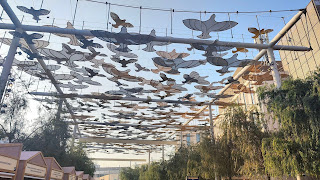Guest blog: Development and Human Rights in Bolivia: Advances, Contradictions, and Challenges
Guest blog by Juan Pablo Bohoslavsky Former UN Independent Expert on debt and human rights. From February 2011 to April 2014 he worked as a Sovereign Debt Expert for the United Nations Conference on Trade and Development (UNCTAD) coordinating the Expert Group on Responsible Sovereign Lending and Borrowing. He has published books and articles on sovereign financing, foreign investment, transitional justice and human rights.
In May 2019, when Evo Morales was still in power, I conducted a mission to Bolivia to report on the links between the economy and human rights in the country. In March this year the Bolivian government made it clear at the Human Rights Council that it didn’t like what the report said. I would like to share with you the article just published based on the findings of the report. The article goes attached.
Many scholars and social activists consider the economic and social policies implemented during the Evo Morales governments in Bolivia as a unique case of heterodox economic development. I try to show the advances, complexities, contradictions and challenges of this development model.
Figures and statistics collected demonstrate a developing country’s ability to create the necessary fiscal space to realize economic and social rights through targeted macroeconomic policies. Real per capita gross domestic product (GDP) grew by more than 50% these past 13 years, with the poverty rate falling below 35% (down from 60% in 2006), and the extreme poverty rate falling from 37.7% in 2006, to 15.2%. Yet Bolivia is still one of the poorest countries in South America, and since October 2019, it is going through an unprecedented political and institutional crisis.
Figures also provide empirical evidence that structural adjustments based on the neoliberal and orthodox ideology, such as fiscal consolidation, privatization, deregulation of markets, and labor flexibilization, are not necessarily the only or optimal policy option for economic growth and sustainable development.
From 2006 to 2019, Bolivia was successful in turning itself into a thriving economy in the region. The export boom in hydrocarbons, coupled with strong, continuous public investment and increased domestic consumption, has been the engine of economic growth. The government has in recent years dedicated increased fiscal revenues to public investments, which has contributed to a significant reduction in poverty and inequality, and to social inclusion.
After many years of success in expanding the economy and promoting social inclusion, the growth of fiscal revenue slowed down due to the fall in hydrocarbon prices in 2014. Yet instead of turning to austerity measures, the government maintained the high level of public investment and resorted to international reserves and external borrowing as alternative sources of finance.
While it could be acknowledged that Bolivia challenged successfully some orthodox neoliberal macroeconomic policies, the government did not question the country’s position within the wider structures of global capitalism, where its heavy dependency on extractivism increased over the years.
It is thus not surprising that there is an emerging need to reassess the economic sustainability of the prevailing model until 2019, in view of the fiscal imbalance caused by the rapid loss of international reserves and the increased public debt. The change in the fiscal revenue matrix accentuated further the existing structural constraints in the economic and social system, including limited economic diversification with high dependence on extractive resources, the regressive tax system, the large degree of informality, and the uneven distribution of fiscal revenue to subnational governments. For the model to contribute to the full realization of human rights, its structural constraints need to be evaluated and addressed on the basis of a human-rights framework.
Furthermore, while economic growth has brought many benefits to the population, there is a need for deeper reflection on rising tensions in relation to different values and goals, such as mass consumption and the concept of living well, property on the one hand and collective rights and solidarity on the other, and individualism propelled by the market economy and extractivism and the protection of Pachamama (Mother Earth) in line with the vision of the Patriotic Agenda 2025. Reflection on these values and goals is all the more urgent and critical in light of the latest political developments in the country.
In light of the latest political developments in Bolivia, it is worth recalling that democracy, the rule of law, and full respect for human rights are the building blocks of inclusive growth and sustainable development. The brutal acts of repression and violence against the population by state agents in the aftermath of the presidential elections—in particular after the resignation of Morales—attest painfully to the fact that those building blocks have been destroyed. There is no place for sustainable and inclusive development unless democratic institutions are restored on the basis of full respect for human rights.
The transition to a new government should be based on democratic processes and full respect for human rights and the rule of law. Any reform measures that a new government to be elected may adopt should build on the significant advances made in the last decade in the realization of economic, social, and cultural rights, and seek to address the existing fiscal and macroeconomic challenges highlighted in this article. At the same time, lessons need to be learned in terms of the paramount importance of ensuring, both in law and in practice, the right of political participation in the context of economic policies. The state must allow for and seek the broadest possible national dialogue, with the effective, timely, and meaningful participation of all individuals and groups, including marginalized groups and those particularly at risk of vulnerability from such policies.




Comments
Post a Comment